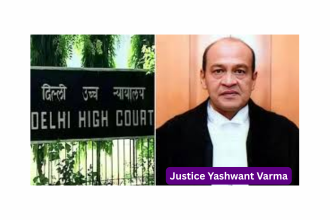In a significant development concerning environmental protection and the promotion of sustainable transport, the Supreme Court of India has asked the Union government to submit a detailed status report regarding its policy decisions aimed at promoting electric vehicles (EVs) and establishing the necessary charging infrastructure across the country. The directive came in response to a Public Interest Litigation (PIL) filed by Centre for Public Interest Litigation, Common Cause, and the SitaRam Jindal Foundation.
Background of the Case
The PIL, filed in 2019, highlights the alarming rise in air pollution and climate change issues attributed to the massive number of fossil fuel-powered vehicles on Indian roads. The petitioners argued that the government’s inaction violated the fundamental rights to health and a clean environment guaranteed under Articles 14 and 21 of the Constitution of India.
Citing the National Electric Mobility Mission Plan (NEMMP) 2020 and the NITI Aayog’s 2018 report “Zero Emission Vehicles: Towards a Policy Framework,” the petitioners contended that despite various policy announcements, the actual implementation had been grossly inadequate. They called for robust measures including the creation of demand for electric vehicles, building widespread charging infrastructure, providing consumer incentives, and adopting a ‘feebate’ system to penalize polluting vehicles while subsidizing cleaner alternatives.
Supreme Court’s Observations
The bench, comprising Justices Surya Kant and N Kotiswar Singh, after hearing Advocate Prashant Bhushan for the petitioners, emphasized the importance of government intervention to bolster the adoption of electric vehicles in India.
Bhushan pointed out that while the 2012 policy target was to have around 70 lakh electric vehicles on the road by 2020, even by 2025, the numbers stood at a disappointing 35 lakh. Furthermore, against the target of setting up 2.27 lakh EV charging stations, only about 27,000 have been established nationwide.
The bench acknowledged these concerns but also stressed that apart from government initiatives, factors like public trust, affordability, and market dynamics play crucial roles in the widespread adoption of EVs. Justice Kant further noted the significant contribution of the automobile sector to India’s economy in terms of revenue and employment.
Government Response and Supreme Court’s Directive
Representing the Union of India, Attorney General R. Venkataramani sought additional time to file a comprehensive status report outlining the policy measures undertaken to promote electric vehicles and the corresponding infrastructure development. The Court granted four weeks’ time for this purpose and scheduled the next hearing for May 14, 2025.
The Court had previously, in 2020, recognized that issues concerning EV adoption and infrastructure have a direct and severe impact on the environment, not just in the National Capital Region but across the country. It had called for assistance from stakeholders on several key points:
- Procurement policies for electric vehicles
- Installation of adequate charging ports
- Implementation of a feebate system (fee + rebate mechanism)
- Promotion of hydrogen vehicles and other alternative energy sources
- Assessment of the environmental and import impacts
Key Demands and Suggestions by Petitioners
The petitioners have laid down a comprehensive roadmap for accelerating India’s transition towards electric mobility, which includes:
- Government Fleet Electrification: Mandating government and public sector units to procure and use electric vehicles extensively.
- Demand-Side Incentives: Offering subsidies to consumers to offset the higher upfront costs of EVs.
- Infrastructure Development: Establishing robust charging networks at public parking spaces, residential buildings, commercial complexes, and bus depots.
- Private Sector Involvement: Encouraging private investment into the EV charging ecosystem through incentives and policy support.
- Feebate System Implementation: Levying fees on polluting vehicles to fund rebates for EV purchasers.
- Preferential Policies: Introducing measures such as preferential parking for EVs, toll exemptions, and mandatory charging stations in new residential and commercial developments.
The PIL also underlined that the government’s failure to effectively implement these recommendations has aggravated urban air pollution problems, making Indian cities among the most polluted globally and endangering public health, particularly affecting children.
The Larger Environmental Context
The urgency behind promoting electric vehicles is rooted in the broader environmental crisis. Transportation emissions are a major contributor to air pollution and greenhouse gas buildup. According to the petition, over 26 crore fossil-fuel-run vehicles on Indian roads contribute heavily to deteriorating air quality and climate change.
EVs offer a cleaner, greener alternative, but their success hinges on supportive government policies, adequate infrastructure, affordable prices, and greater public awareness. Without strategic intervention, India risks falling further behind its environmental targets, undermining its commitments under international frameworks such as the Paris Climate Agreement.
Conclusion
The Supreme Court’s latest directive is a welcome move towards holding the government accountable for its commitments to promoting clean mobility. As the nation grapples with worsening pollution and climate challenges, timely and effective policy action is imperative.
The upcoming status report from the Union of India will be crucial in assessing the seriousness of the government’s efforts in this domain. With the next hearing slated for May 14, all eyes will be on how the government plans to bridge the gap between its ambitious policy announcements and the ground realities faced by millions of Indians.
Promoting electric vehicles is not just about technological adoption; it is a critical step toward safeguarding public health, combating climate change, and ensuring a sustainable future for generations to come.


